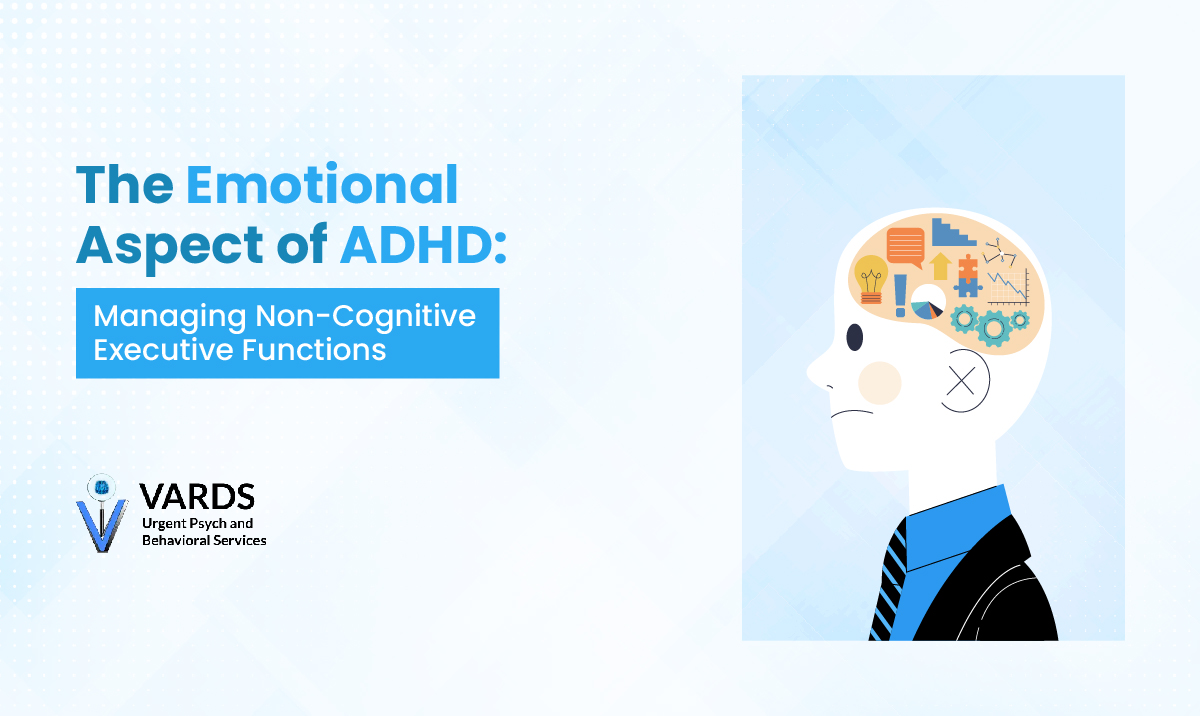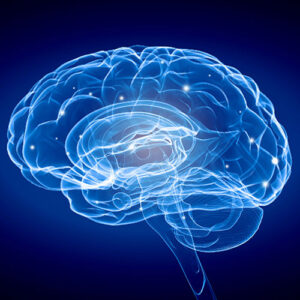Attention Deficit Hyperactivity Disorder (ADHD) is widely discussed in terms of its impact on concentration, impulsivity, and hyperactivity.
However, the emotional layers tied to ADHD’s non-cognitive executive functions often remain in the shadows, undeservingly overlooked.
This exploration sheds light on the emotional intricacies of ADHD, revealing strategies for better management and understanding.
Understanding Non-Cognitive Executive Functions
Before diving into the complexities of managing these functions, let’s establish a foundational understanding.
What Are Non-Cognitive Executive Functions?
Executive functions refer to the mental skills that are used in the process of achieving goals.
These include tasks such as planning, organising, strategizing, paying attention to and remembering details, and managing time and space.
While these are commonly discussed aspects of executive function, the non-cognitive facets, such as emotional regulation, motivation, and perseverance, are equally vital yet less acknowledged components of ADHD.
The Role of Emotions in ADHD
Emotions play a pivotal role in ADHD, influencing its management and the overall experience of those living with the condition.
The challenge in emotional regulation can be profound and is often a source of distress, significantly impacting daily functioning and quality of life.
Understanding this emotional intricacy is the first step toward effective management.
Navigating Emotional Dysregulation
Living with ADHD involves a constant battle against emotional storms that can arise from seemingly minor events.
Here are strategies to navigate these turbulent waters.
1. Recognizing Emotional Triggers
The first step in managing emotional dysregulation is identifying what triggers these intense emotional responses.
Triggers can vary widely among individuals with ADHD and may include feelings of overwhelm, sensory overload, or unexpected changes in plans.
2. Developing Coping Strategies
Once triggers are identified, developing personalized coping strategies becomes crucial.
This may include techniques for de-escalation, such as mindfulness, deep breathing exercises, or engaging in physical activity to help diffuse built-up energy and tension.
The Impact of ADHD on Relationships
The emotional aspects of ADHD don’t just affect the individual; they ripple out, influencing relationships with family, friends, and colleagues.
Communication is Key
Open, honest communication about the challenges of ADHD can lead to greater understanding and support from loved ones.
Setting clear expectations and establishing boundaries can help in creating a supportive environment that fosters healthy relationships.
Seeking Support
Having a solid support system is invaluable.
This may include therapy, attending support groups, or simply having a friend who understands and can offer a listening ear.
Tools for Thriving
Living with the emotional aspects of ADHD is an ongoing journey that requires patience, understanding, and a toolkit full of strategies.
1. Harnessing Technology
Utilize technology to its fullest potential. Apps designed to help with organization, time management, and habit formation can be incredibly beneficial.
They can provide a structure that might be lacking naturally, thereby reducing feelings of overwhelm and anxiety.
2. Therapy and Counseling
Engaging in therapy, particularly with professionals experienced in ADHD, can lead to significant improvements.
Therapies like Cognitive Behavioral Therapy (CBT) have shown to be particularly effective in helping individuals manage and navigate the complexities of ADHD.
The Importance of Self-Acceptance
One of the most powerful tools in managing ADHD, especially its emotional components, is self-acceptance.
Understanding and accepting that some days will be harder than others, yet recognizing your strength and resilience, can be profoundly empowering.
Focusing on and celebrating small victories can lead to a positive feedback loop, where self-esteem is bolstered, and motivation is increased.
This can make managing the challenging aspects of ADHD somewhat easier.
Virtual Allied Remote Diagnostics and Clinical Services
While managing the emotional aspects of ADHD is challenging, it’s important to remember that you’re not alone.
If you or a loved one are navigating this journey, consider reaching out to Virtual Allied Remote Diagnostics and Clinical Services.
Our team of professionals, experienced in ADHD and its complexities, is here to offer support, guidance, and assistance.
Whether you’re seeking diagnostic services, therapy, or just looking to understand more about managing ADHD, we’re here to help.
Take the first step towards understanding and managing ADHD.
Book an appointment with us today.
Together, we can work towards a life where ADHD is not a barrier, but a part of your unique story that does not define, but rather, enriches your experience.
References and Resources
Here are some resources that provide additional information and support for managing ADHD, especially concerning the emotional aspects:
- Barkley, R.A. (2015). Attention-Deficit Hyperactivity Disorder: A Handbook for Diagnosis and Treatment. New York: Guilford Press.
- Brown, T.E. (2009). ADHD Comorbidities: Handbook for ADHD Complications in Children and Adults. Washington, DC: American Psychiatric Pub.






